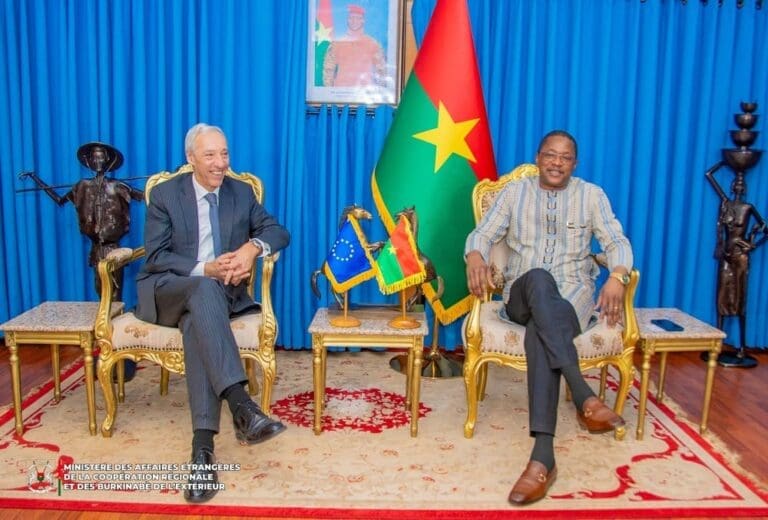The head of Burkina Faso’s diplomacy met on Tuesday with the newly appointed EU Special Representative for the Sahel, João Gomes Cravinho, during an audience in Ouagadougou.
Cravinho, who is visiting the country, engaged in talks with Jean Marie Traoré on ways to strengthen Brussels-Ouagadougou partnership.
“Our objective is to continue working in Burkina Faso on issues of paramount importance to the population, particularly in the areas of development aid and food security,” Cravinho stated.
The Special Representative also highlighted that the EU is actively involved in humanitarian projects in Ouagadougou aimed at improving living conditions for the local population.
For João Gomes Cravinho, the meeting in Ouagadougou is an opportunity to reinforce EU-Burkina Faso ties, with a focus on the importance of dialogue.
Burkina Faso’s Foreign Minister praised Cravinho’s approach, which emphasises active listening.
“If both parties listen to each other, relations will move in the right direction. We are also engaged in speaking more to present our true situation and help our partners better understand us,” he said.
He stressed “the necessity of dialogue and listening to prevent partners from formulating policies before determining whether they suit the reality on the ground. We need to rethink and adjust perspectives based on the potential of Burkina Faso and the Sahel.”
The two officials also discussed the withdrawal of Sahel Alliance (AES) countries from ECOWAS.
In response to a question from the EU Special Representative for the Sahel, the Burkinabé Foreign Minister “outlined the objective reasons that led AES countries to withdraw from ECOWAS, clarifying that this was not a move to sever ties but rather a response to the need for space to foster genuine solidarity and address common challenges facing the three AES countries,” according to a statement from the Ministry of Foreign Affairs’ communication department.
João Gomes Cravinho stated that the EU maintains “a position of neutrality and respects the sovereign choice of countries to leave an organisation, just as was the case when the United Kingdom decided to leave the European Union.”
DS/te/lb/as/APA


